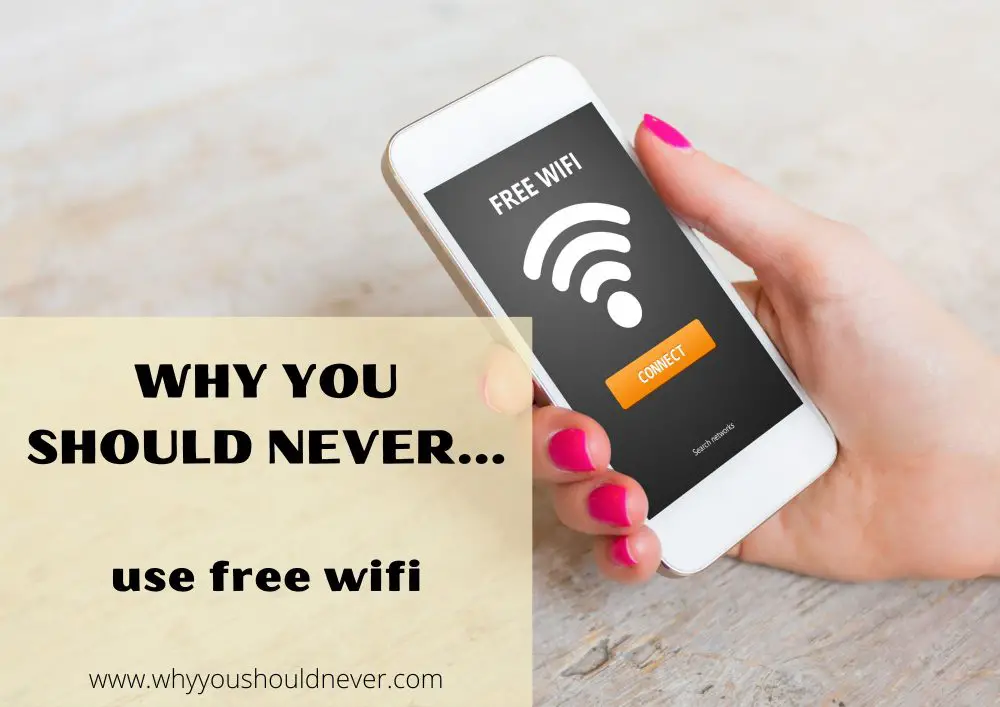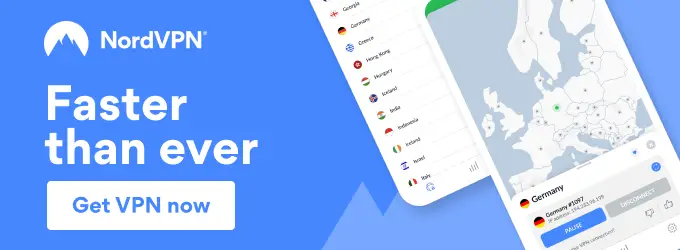![]()
Why You Should Never Use Free Wifi
The temptation is real! You’re out and about, and you see that familiar “free WiFi” sign. You think to yourself, “Hey, I could really use some free internet right about now.” So you connect to the network and start using it for all your web browsing needs.
Free WiFi is incredibly convenient, and more and more businesses are offering it to their customers, not just out of the goodness of their hearts, but because they know it’s a selling point and a way to get people to stay longer.
Mobile data plans can be expensive, and data gets eaten up quickly, especially if you’re streaming video or music, so the appeal of free WiFi is understandable.
However, using free WiFi does have its downsides. Big ones, actually. All of which we’ll discuss below.
6 reasons why you shouldn’t use free WiFi
1. It’s not secure
When you connect to a free public WiFi network, you’re essentially opening yourself up to attacks from anyone else who is on that network.
Hackers can easily set up fake networks masquerading as legitimate ones, and if you connect to one of those networks, they can snoop on your traffic and even insert themselves into the communication between your device and the website or service you’re trying to access.
That means they can see everything you’re doing online—including any passwords or other sensitive information you might be entering—and even potentially redirect you to malicious websites without your knowledge.
2. It’s slow
Free public WiFi is almost always painfully slow. That’s because the networks are usually overloaded with users, which can make even basic web browsing a slog. And if you’re trying to do something data-intensive like streaming video or downloading large files, forget it—you’ll probably just end up frustrated and angry.
3. Sometimes there are time limits
Most free WiFi hotspots have time limits, which means you’ll eventually get kicked off the network even if there aren’t any other users trying to connect. That can be particularly annoying if you’re in the middle of something important and suddenly find yourself without a way to continue working.
4. It might not be free
In some cases, “free” WiFi comes with a hidden cost: personal data.
Some networks will require you to provide an email address or phone number before allowing you access, which means they can then spam you with advertising or sell your information to third-party marketers.
Others might give you limited access for free but then charge a fee for anything beyond the basics. In either case, it’s not really “free” at all—so you might as well just use your own data plan instead.
5. The connection is often terrible
Even if there aren’t strict time limits or sneaky fees involved, free public WiFi is often just plain bad. The connection is usually flaky at best, which means pages take forever to load (if they load at all) and apps are constantly timing out or crashing.
In short, it’s just not worth the hassle —especially when your own data plan would probably work better.
6. People can see what you’re doing
Unless you’re using a VPN, anything and everything you do on a public WiFi network is visible to everyone else on that network. That includes everything from the websites you visit to the files you download — so if there’s anything at all that you wouldn’t want someone else seeing, then connecting to a public WiFi network is probably not a good idea.
Conclusion
By now, it should be abundantly clear that using free public WiFi is more trouble than it’s worth. There are simply too many potential risks involved — from lackluster speeds to security concerns — so unless absolutely necessary, it’s best just to avoid using them altogether.
After all, your cellular data plan is probably much more reliable — not to mention more secure — so why bother taking chances?
And for those times when using public WiFi is unavoidable, consider getting a VPN. A good VPN can encrypt your traffic and help protect your privacy, even on an unsecured network. Nord VPN is a great option with extremely competitive pricing.

